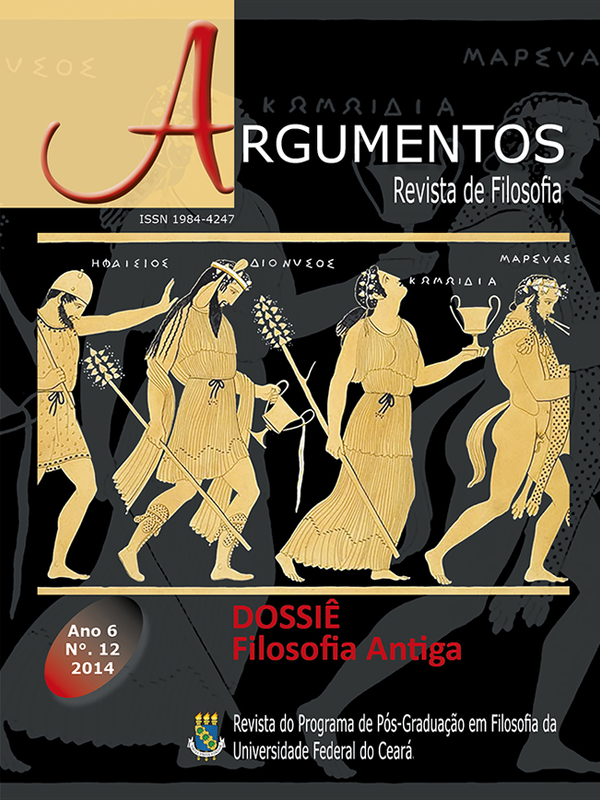Teoria da amizade de Aristóteles e o egoísmo ético
DOI:
https://doi.org/10.36517/arf.v6i12.19068Palavras-chave:
Política. Aristóteles. Autossuficiência.Resumo
A amizade funda uma relação política que secundariza qualquer primado instrumentalizador para as relações entre o eu e os outros, pois o que fundamentalmente está em jogo não são unicamente os próprios desejos “auto-referentes” ou os dos outros, mas a construção de uma base de ação e “co-relação” político-ética em que o fundamental é o que há de comum entre nós, o que “com-partilhamos” e “com-sentimos”. Defendemos, pois, que é tal perspectiva que Aristóteles procurará fundamentar em VII Ethica Eudemia e VIII, IX Ethica Nicomachea (EN). Dessa forma, a partir da estrutura existencial do homem, e assim mantendo a coerência com o que nos é exposto na Política, Physica, De Anima e Metaphysica, não por necessidade, mas por sua constituição política e ontocosmológica, a amizade apresenta-se como uma resposta “apropriada” ao modo como os homens devem relacionar-se, a saber: “o homem é um ser político e está na sua natureza o viver em comunidade. Por isso, mesmo o homem feliz viverá na companhia dos outros, visto possuir ele as coisas que são boas por natureza” (EN 1169b15-20).
Downloads
Downloads
Publicado
Edição
Seção
Licença
Autores que publicam nesta revista concordam com os seguintes termos (SOBRE COPYRIGHT E POLÍTICA DE ACESSO LIVRE):
1. Autores mantém OS DIREITOS AUTORAIS concedidos à revista OU Direito de Primeira Publicação, com o trabalho simultaneamente licenciado à Atribuição de Licença Creative Commons (CC BY) que permite o compartilhamento dos trabalhos com reconhecimento de autoria e publicação inicial nesta revista.
2. Autores têm permissão para aceitar contratos, distribuição não-exclusiva da versão do trabalho publicada nesta revista (por exemplo: publicar no repositório institucional ou como um capítulo do livro), com reconhecimento de autoria e publicação inicial nesta revista.
3. Autores têm permissão e são estimulados a publicar e distribuir seu trabalho on-line (por exemplo: em repositórios institucionais ou em sua página pessoal) mesmo durante o processo editorial, haja visto que isso pode aumentar o impacto e citação do trabalho publicado.




.jpg)










._._3.png)
1.jpg)
._._._.png)
